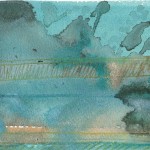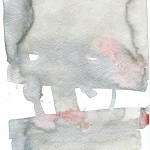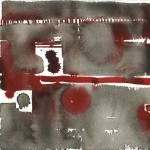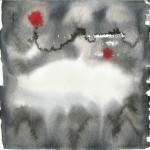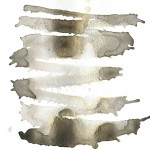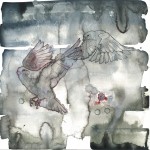I love this — especially the countertenor and the trumpet together, with the trumpet trailing the melody longingly after him. Thanks, David.
The next installment from the glorious “Gestures Toward a Theology of Sleep”:
2. Emily Dickinson on sleep:
Sleep is supposed to be
Sleep is supposed to be
By souls of sanity
The shutting of the eye.
Sleep is the station grand
Down which, on either hand
The hosts of witness stand!
Morn is supposed to be
By people of degree
The breaking of the Day.
Morning has not occurred!
That shall Aurora be —
East of Eternity —
One with the banner gay —
One in the red array —
That is the break of Day!
last year when I returned to Durham after Christmas, I found a 9 x 12 manila envelope containing a paper with this title page:
“Gestures Toward
A Theology of Sleep
in honor of
Stephanie Gehring
OR:
Rest and Unrest: Meditations, Insights, and Good Old-Fashioned Bullshit to Dwell on Late at Night
OR:
This Is What Happens when Your Friends Are Nerds
By
Russell Johnson
Lindsay Eierman
Lauren Greenspan
*perhaps others who wish to remain anonymous*”
I have decided to share this paper with the world, in installments. This is for insomniacs, people who like to sleep, people who like to be awake, and everyone who loves to laugh and think deep thoughts. Here’s point one:
“1. When you take a step back from sleep, you see its contingency, or better, its gratuity. Like mountains, the moon, and red pandas (and unlike eyes, laughter, and death) it is very easy to imagine a world in which sleep did not exist. “It would be exactly like it is now, except 24/7,” we initially think, “After all, I have pulled an all-nighter or two, and I could imagine everyone doing that every night.” I think the differences between this world and the world without sleep– without even the concept of sleep– would be massive. Sleep is like punctuation marks for our lives. Our nightly rests are periods, naps are commas, and we all experience the occasional ellipsis. Without breaks and pauses, life would be much less intelligible. In a world without sleep, poetry would be erratic– the fluidity would collapse in on itself. In a world without sleep, liturgy would be unsure of itself. And, of course, in a world without sleep, raising a child would be impossible.”
First, this video, which is a superimposition of 134 attempts to beat a hacked superhard version of Super Mario, is amazing:
But then also this blog post, which explains how the Mario video is a good picture of multiple universes quantum physics. I almost wrote “quantum philosophy,” which seems right, too. Multiple universe theory is pretty strange. But thanks to the people who put this together, I at least understand it a little better than I understand string theory, now (string theory being my favorite other very strange physics thing about universes).
The church my brother Matthis is planting with my parents is developing a website, and I’m working on background art. Here are a few of the paintings in progress. All but one without words, for a change!
[Click once to expand thumbnails, and once more to see large images.]
Or, I suppose, the Person Who Has A Sense of Humor, or the Person Who Enjoys Inanimate Objects that Appear to Have Personalities.
[With thanks to Chris Tilling.]
How is it that there is a Luther insult generator, a Shakespeare insult generator, but no *Nietzsche* insult generator? “Du geistig Plattfüssiger!” is an enormous keeper. (It doesn’t, alas, translate with any zing: in English it’s just “you mental flatfoot.” There must be more deeply ingrained prejudice against flatfootedness in Germany, because in German it sounds utterly crushing to me.)
But while we’re on insults: Flavorwire has a list of thirty great author-on-author insults.
One favorite:
15. William Faulkner on Ernest Hemingway
“He has never been known to use a word that might send a reader to the dictionary.”
14. Ernest Hemingway on William Faulkner
“Poor Faulkner. Does he really think big emotions come from big words?”
“I do not pay Compliments, because I do not desire them. For this Reason, I am very well pleas’d you speak so coldly of my Petition. I had, however, given Orders to have it printed, which perhaps may be executed: Tho’ I believe I had better have left it alone. Not because it will give Offence, but because it will not give Entertainment: Not because it may be call’d profane; but because it may deservedly be call’d dull.”
[from “A Letter Concerning the Dialogues on Natural Religion”]






